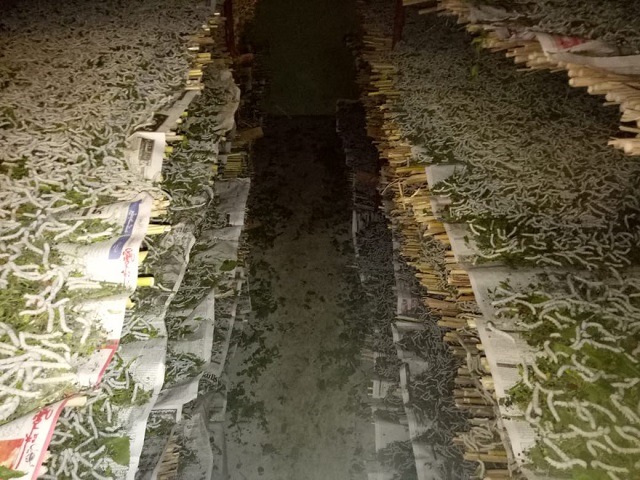ISLAMABAD: The government needs to take concrete steps for capacity building of silk farmers so that they can play a better role in the development of the national economy, WealthPK reports.
Sericulture has been practiced as a cottage industry in Pakistan. However, due to the lack of training and research facilities, the silk industry has not shown remarkable growth during the last few years. Silk farmers can contribute to sericulture in a better way if the government takes measures for their capacity building.
Muhammad Farooq Bhatti, Deputy Director of the Punjab Forest Department, told WealthPK that sericulture had not been explored according to its potential. He added that most of the silk farmers were using old traditional methods for cocoon production.
“We have not devised effective and result-oriented policies to promote the silk industry. However, in 2007 Khyber Pakhtunkhwa government took the lead and promoted its sericulture,” he said. Sericulture has the potential to generate income for about 670,000 families. “We rely on the import of silk to meet our needs. We import silk worth Rs67 billion annually,” he added.
Farooq Bhatti said that the textile industry was the main importer of silk. “We purchase silk directly or indirectly from China, some countries in Central Asia, India, Japan and other states. We can save these Rs67 billion if we stop importing silk and begin producing it domestically. Additionally, 6,70,000 low-income families will have a source of income,” he added.
He said that since its inception in 1947, sericulture had been practiced as a cottage industry. “However, this industry has been in decline since the 1970s. After 2010, we started work on its rehabilitation,” he added.
The official said that there were about 4,000 trained families in Changa Manga to produce silk. He said that the forest department was trying to get those families involved in the silk business. The forest department will provide silk eggs to these families for cocoon production.
He said that silk could be produced twice a year. “February to April and September to November are its two seasons. During these two seasons, one family can easily make 150 kilograms of silk per year. The forest department give farmers silk seeds to encourage the production of silk,” he added.
Farooq Bhatti said that from a research point of view, Pakistan was far behind other countries and as far as sericulture was concerned. “We have not conducted any research in this field. In the short term, we can import seeds but in the long run, we need to move toward self-sufficiency in terms of seed production, so we must reduce our reliance on imports,” he added.
He said that universities and other institutions in Pakistan needed to conduct research in sericulture to become self-sufficient in silk production. “Our researchers need to fulfil their duties in this regard. Researchers must design initiatives that promote human growth and increase our silk output, both of which will benefit our market in the long run,” he added.
Farooq Bhatti told WealthPK that farmers could produce more high-quality silk and contribute to the industry more effectively if the government assisted them by importing higher-quality eggs, providing cheap electricity and building their capacity. The forest department has promoted sericulture but still, there is a lot of work needed to be done.





